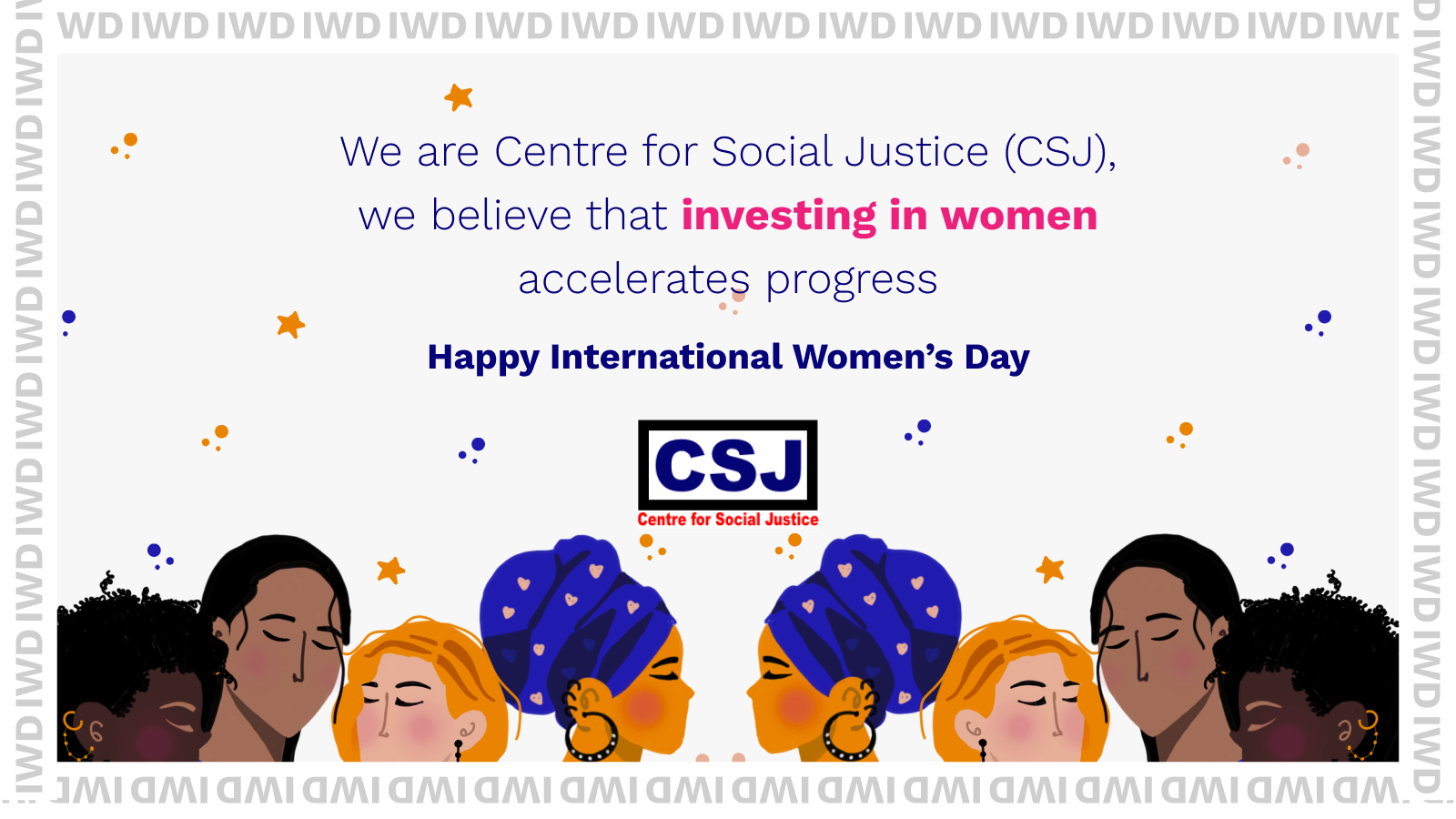In Celebration of International Women’s Day 2024

In celebration of the International Women’s day 2024 and focused on the need to inspire inclusion, Centre for Social Justice (CSJ) affirms that the theme of investing in women to accelerate progress is pivotal to the realization of the Sustainable Development Goals and a Nigeria free of poverty, inequality, and discrimination. The theme is also imperative for the realisation of the goal of the National Gender Policy which is to build a just society devoid of discrimination, where the needs and concerns of women, men, girls, boys, and other vulnerable groups are mainstreamed equitably into all sectors of national development
CSJ recalls the feminization of poverty in Nigeria and the inequality prevalent in access to basic services including education and health. In education, out of the over 20million out of school children, two thirds are girls; low comparative levels of literacy, education and livelihood skills among women and girls and many girls who never get a “second chance” opportunity in education. The foregoing distorts the goal of equity and equality. Education has been recognized by scholars as both “a human right in itself and an indispensable means of realizing other human rights. As an empowerment right, education is the primary vehicle by which economically and socially marginalized adults and children can lift themselves out of poverty and obtain the means to participate fully in their communities. Education has a vital role in empowering women, safeguarding children from exploitative and hazardous labour and sexual exploitation, promoting human rights and democracy, protecting the environment, and controlling population growth. Increasingly, education is recognized as one of the best financial investments States can make”
In health, Nigeria records scandalously high maternal mortality and morbidity rates; the highest number of child brides in Africa; and the third highest number of women and girls in the world who have undergone female genital mutilation. However, the right to health is an intrinsic part of the right to life because the easiest way to deprive a person of her life is to deny her of health supporting conditions to the point of abrogation. Indeed, from these statistics, Nigeria has been denying women of health supporting conditions for the validation of their right to life.
In agriculture, despite the fact that women constitute over 70% of the farmers, they own less than 20% of agricultural assets and farms.
Beyond these two sectors, the emerging data for women and girls in other sectors are not impressive as the state fails in its duty to respect, protect and fulfil women’s rights to equal opportunities. In the circumstances, CSJ calls on the Federal and State Governments to increase investments in women and girls. In carrying this out, it is recommended inter alia:
- FGN and State Governments working through the respective Budget Offices, Ministry of Women Affairs and others MDAs develop gender responsive indicators for mainstreaming gender in the budget across all ministries, departments and agencies.
- The review of the National Social Register and the Registers for benefitting from the Basic Health Care Provision Fund to mainstream women and girls who form the predominant block of Nigeria’s poor as beneficiaries from the social interventions. It is imperative to mainstream women and girls as beneficiaries in the ongoing distribution of palliatives by Federal and State Governments.
- Increase investments in gender sensitive farming equipment and ensure equitable distribution of public resources in agriculture to real farmers, especially small-scale women farmers, while weeding out political farmers.
- The relisting and expeditious passage by the Tenth National Assembly of the five gender bills earlier rejected by the Ninth National Assembly. This will increase women’s representation in elected and appointed positions as well as create opportunities for women in every sphere of human endeavor.
Finally, we call on the government, private and social sectors to enhance investments in women and girls to right the wrongs of history.
2024 Celebration of the International Women (94 downloads )
